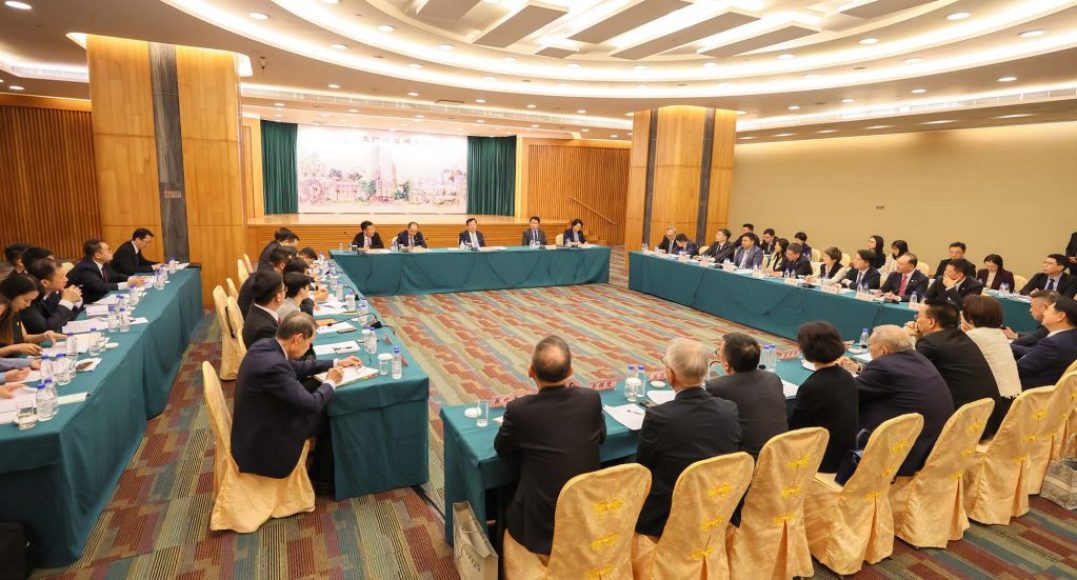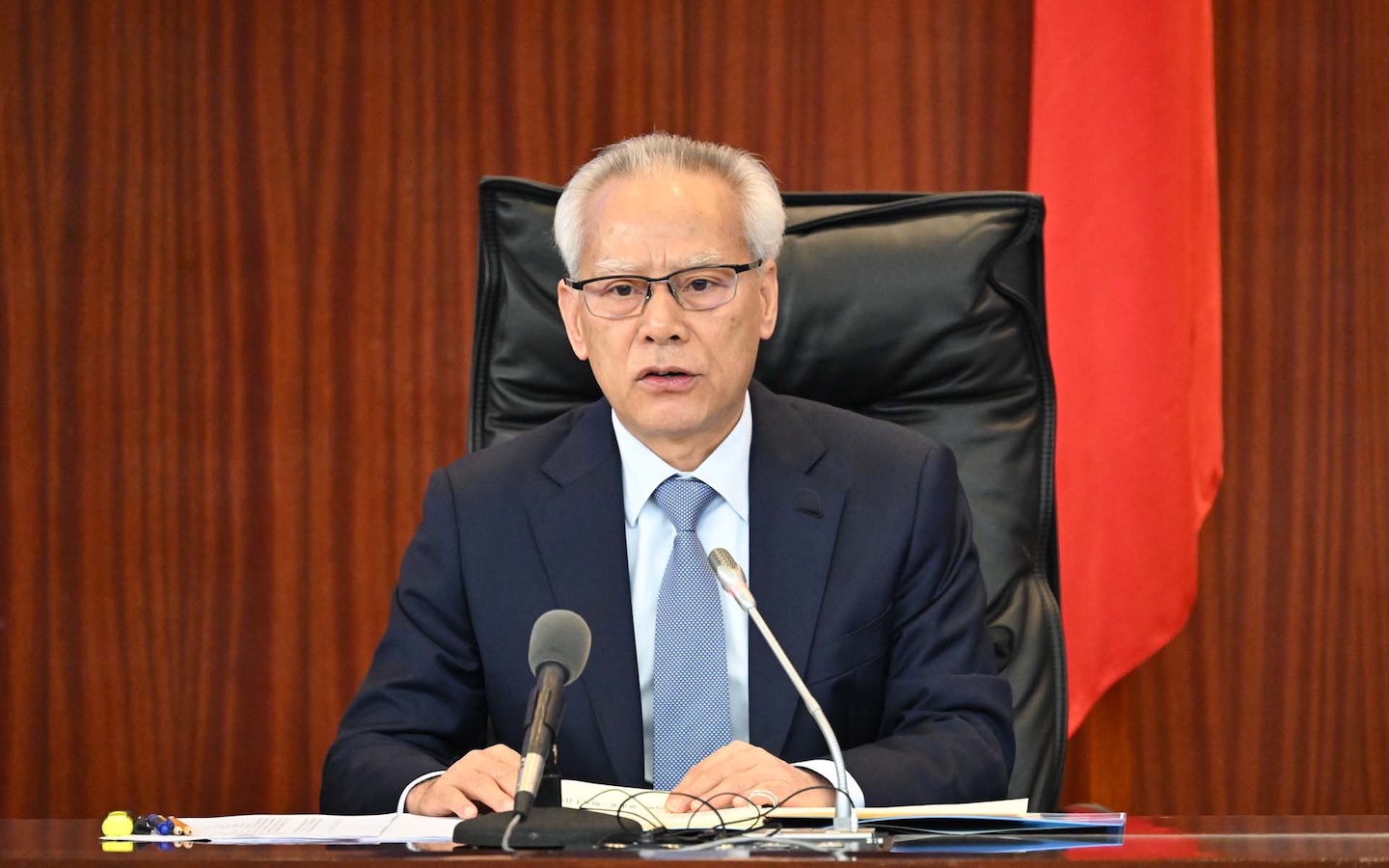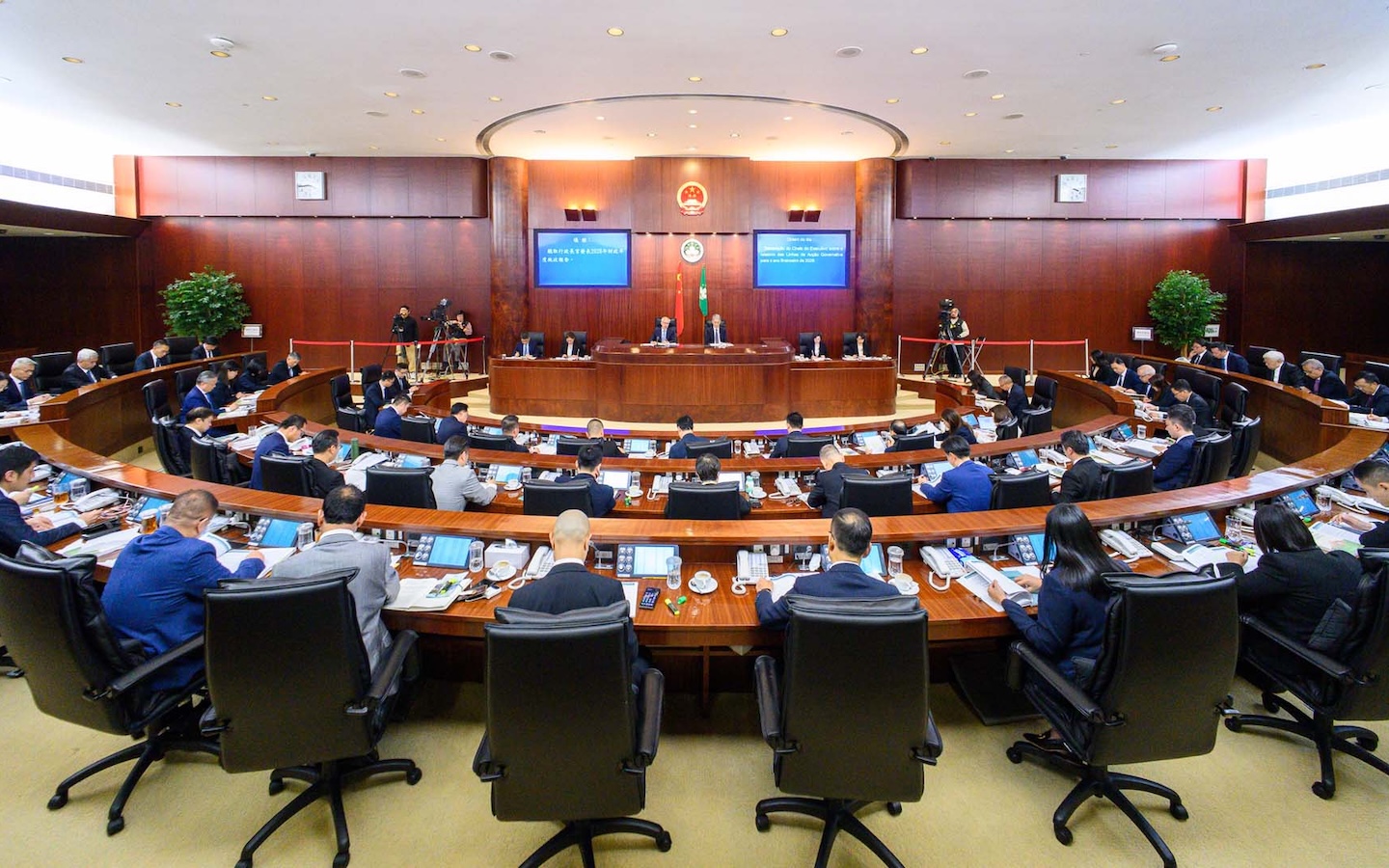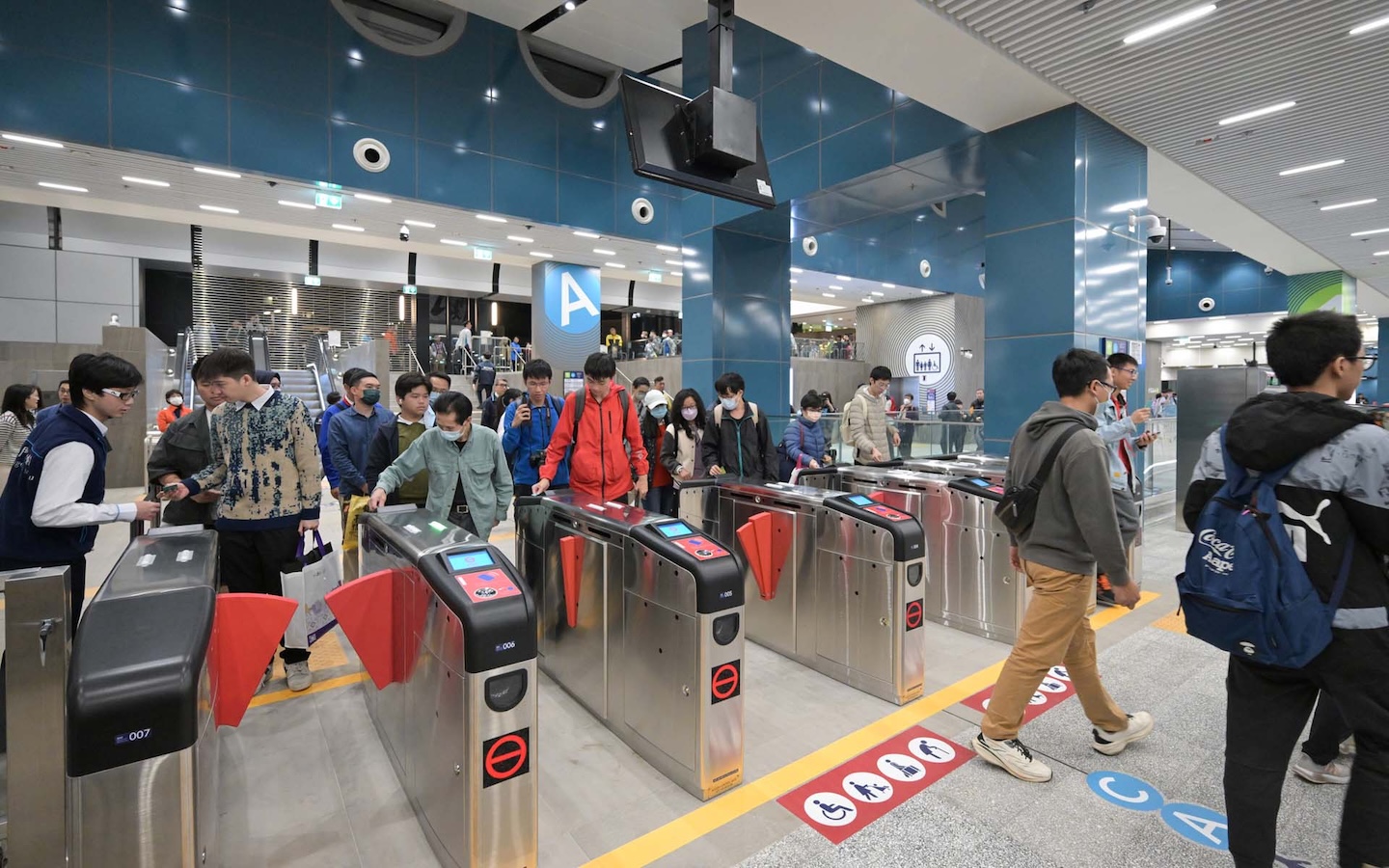In May, Macao played host to the nation’s top official for affairs in the Special Administrative Regions (SARs). Xia Baolong spent a week in the city, on a fact-finding mission that saw him meet with local leaders and community groups, as well as tour some of the city’s sports facilities and the new Macao Bridge. Xia aimed to gain a comprehensive understanding of Macao’s current situation, at a grassroots level, in order to strengthen the shared vision for its future.
Xia heads both the Hong Kong and Macao Work Office of the Communist Party of the China Central Committee and the State Council’s Hong Kong and Macao Affairs Office. He last visited Macao a year ago.
During his latest visit, which took place between 13 and 20 May, Xia referred to Macao as the “pearl in the palm” – an ancient Chinese idiom signifying something very precious. He praised Macao’s progress since its handover from Portuguese to Chinese administration in December 1999, noting that the once sleepy territory had “developed into an international metropolis” under the successfully implemented “One Country, Two Systems” principle. That principle, Xia elaborated, enabled Macao to thrive economically and socially, maintain stability and continuously improve residents’ lives.
Growth in landmass, growth in output
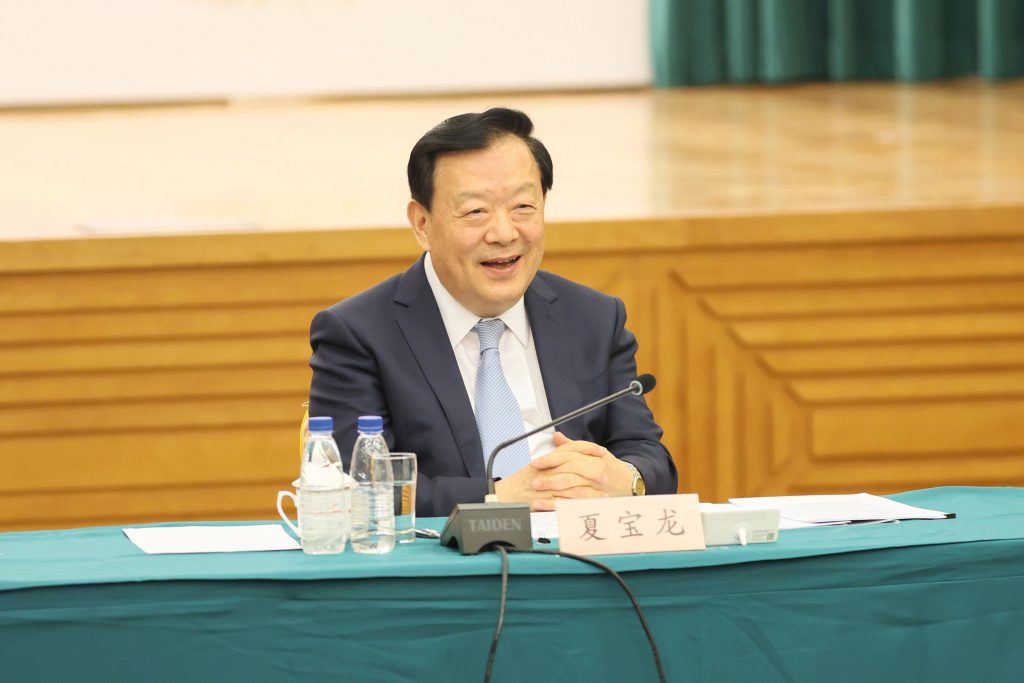
The official backed his observations up with data. The city’s landmass, he pointed out, has grown by more than 10 square kilometres in the past 25 years thanks to intensive land reclamation efforts. The national government had also granted Macao jurisdiction over 85 square kilometres of coastal waters and set aside more than 106 square kilometres of its own land, across the narrow body of water separating the SAR from Hengqin, for the Guangdong-Macao In-depth Cooperation Zone in Hengqin. These expansions effectively brought Macao’s total development area to almost 225 square kilometres.
“Macao is no longer a tiny city,” Xia noted.
This physical growth has been accompanied by an ever-expanding economy. Between 1999 and 2019, the territory’s gross domestic product (GDP) has soared: increasing from around 50 billion patacas to 444.5 billion patacas over the 20 year period. Xia also praised Macao’s healthy fiscal reserves.
Looking to the future, he praised the local government’s “1+4” strategic approach to economic diversification. The strategy aims to strengthen Macao’s role as a World Centre of Tourism and Leisure – its economic backbone – while developing four emerging industries: health and wellness (incorporating Traditional Chinese Medicine), modern financial services, high and new technologies, and the hosting of large-scale international events (including business conventions, sporting fixtures and concerts).
Adding to the city’s reputation as a good place to do business are its low business tax rates and status as one of the most open economies for trade and investment, according to the World Trade Organisation (WTO).
Xia specifically acknowledged Macao’s role in facilitating trade between China and the nine Portuguese-speaking countries, a group that forms a multilateral economic cooperation union known as Forum Macao – which has a permanent secretariat based in the SAR.
Macao’s more general role on the international stage was also growing, Xia said. The SAR has formalised strong economic and trade relationships with over 120 countries and regions and is a member of more than 190 international organisations (as ‘Macao, China’). Its passport holders enjoy visa-free access or visas on arrival in 145 countries and regions, enabling residents to travel far and wide with ease.
Leaning into Macao’s cultural riches
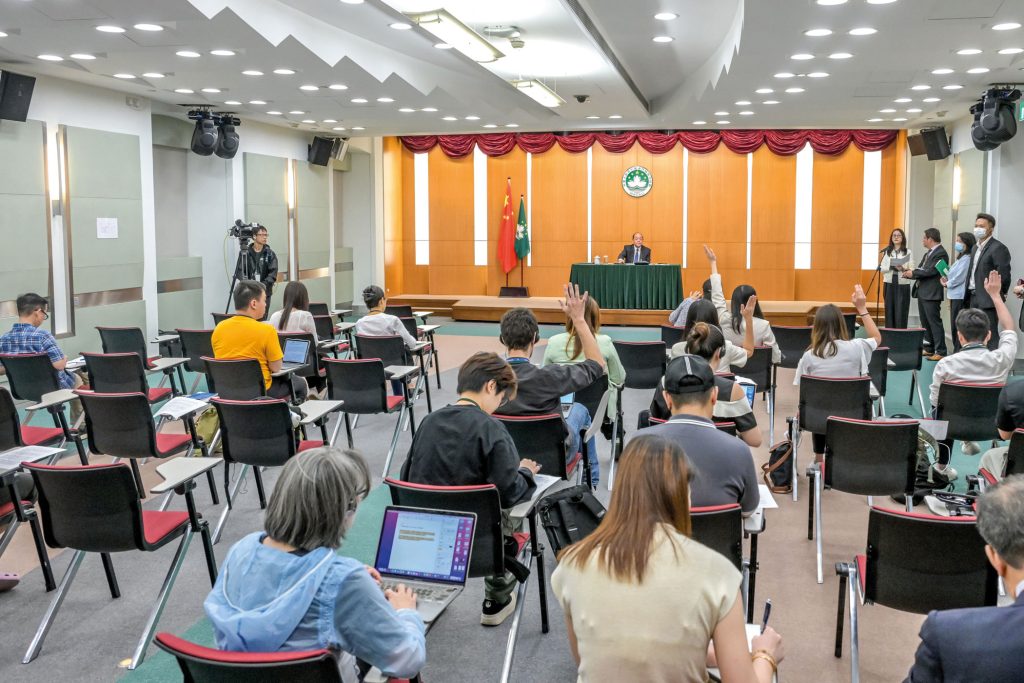
Xia expressed his admiration for Macao’s vibrant multiculturalism, visible in the diversity of languages currently spoken in the city as well as in its historical architecture. He noted that the friendly coexistence between different ethnicities so easily observed in Macao was something for its people to be proud of; it reflected the territory’s unique position as a place where Chinese and Western cultures have intermingled for centuries.
This cultural richness was a very special asset, Xia asserted. Something recognised internationally, by the likes of UNESCO – which has inscribed Macao’s Historic Centre on its World Heritage List and pronounced Macao a Creative City of Gastronomy. Xia also highlighted the city’s safeness, another attribute lending itself to Macao’s status as a wonderful tourism destination.
At a meeting with members of the Macao Chamber of Commerce during his visit, Xia outlined four suggestions that could help the SAR meet its development targets. Firstly, he urged greater efforts around promoting economic diversification, focusing on the “1+4” strategy. Secondly, he highlighted the importance of integrating Macao into national development plans, including the Guangdong-Hong Kong-Macao Greater Bay Area (GBA) and the Belt and Road Initiative (BRI). He also encouraged the local government’s ongoing commitment to developing the Guangdong-Macao In-depth Cooperation Zone in Hengqin.
Xia’s third suggestion was to further enhance Macao’s international influence by expanding on existing connections with the European Union, Southeast Asia, and Portuguese-speaking countries. Finally, he stressed the need to foster a strong sense of patriotism and loyalty within Macao, ensuring broad social consensus on development goals.
Xia added the national government’s support to the picture: “We must fully support the chief executive and the MSAR government [to govern] in accordance with the law, better leverage Macao’s unique status and advantages, promote high-quality economic and social development, and work together to make Macao’s ‘golden business card’ shine even brighter,” he said.
While in the city, Xia praised what he saw as Macao’s six key advantages: the “One Country, Two Systems” principle, sufficient development space, a highly internationalised business environment, its strong economic foundation, a unique blend of Chinese and Western cultures, and a strong tradition of patriotism and loyalty.
Commitment to Macao’s future
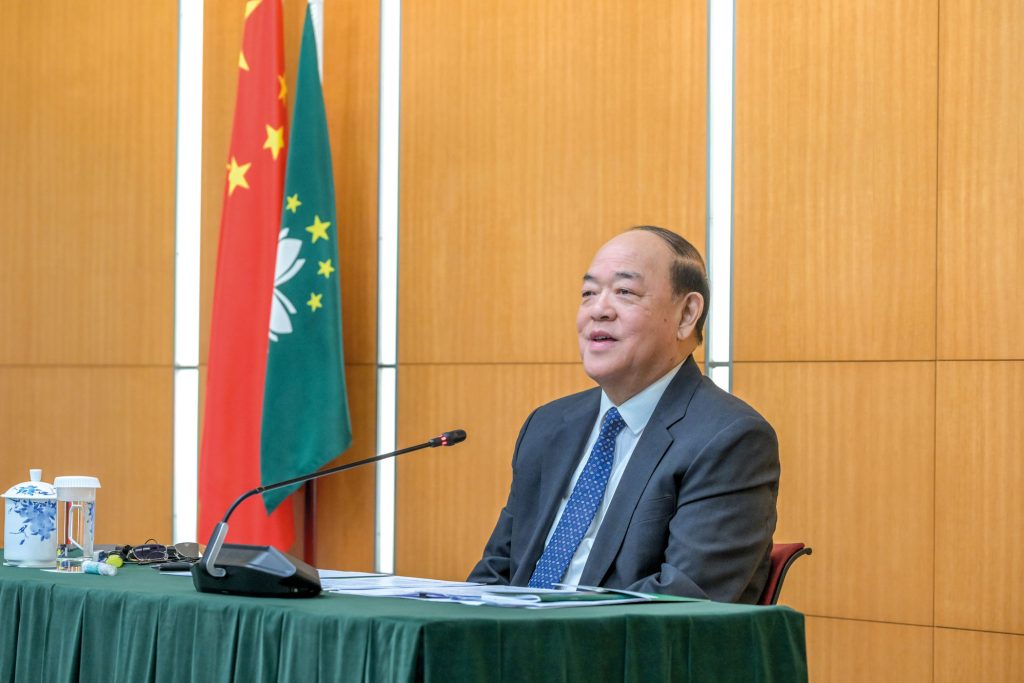
Following Xia’s visit, Chief Executive Ho Iat Seng noted that the top official “fully affirmed the progress made by Macao in all aspects of work.” He reiterated the local government’s commitment to enhancing Macao’s global standing and detailed steps the local government would take to achieve the goals suggested by Xia.
Ho emphasised that the city’s economic diversification strategy was already bearing fruit, with new data indicating that the long-dominant gaming industry had contributed to less than 40 percent of last year’s GDP – a significant reduction implying the government’s five-year plan for diversification was running ahead of schedule.
Xia’s visit to Macao highlighted the city’s achievements and its strategic importance to China. His praise and suggestions provided a clear roadmap for Macao’s future, emphasising economic diversification, integration into national development plans, and enhancing international influence. With the support of the central government and the commitment of local leaders like its chief executive, Macao is poised to continue its transformation into a vibrant international metropolis, making its “golden business card” shine even brighter.
